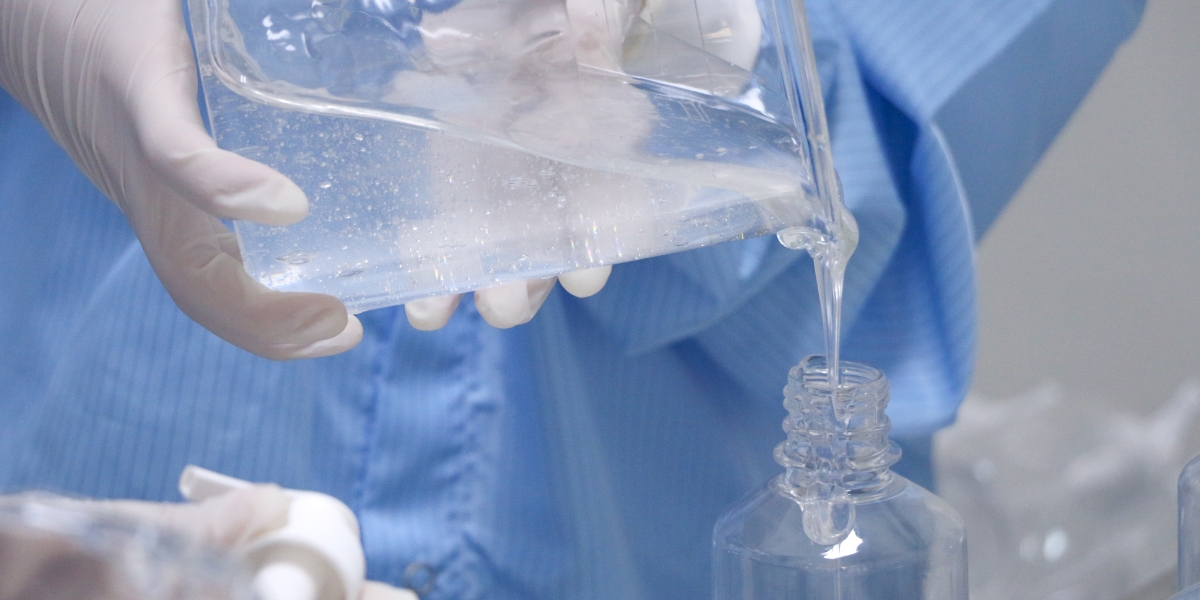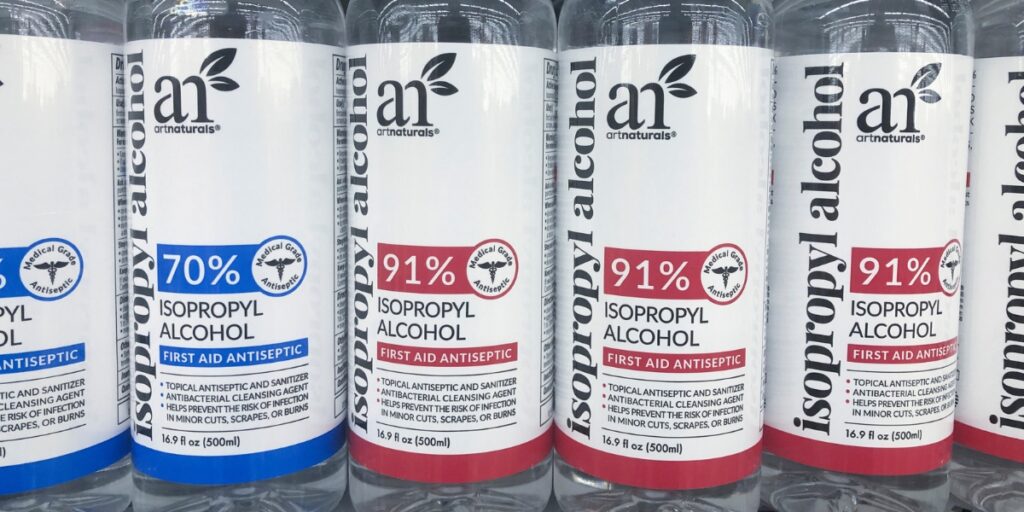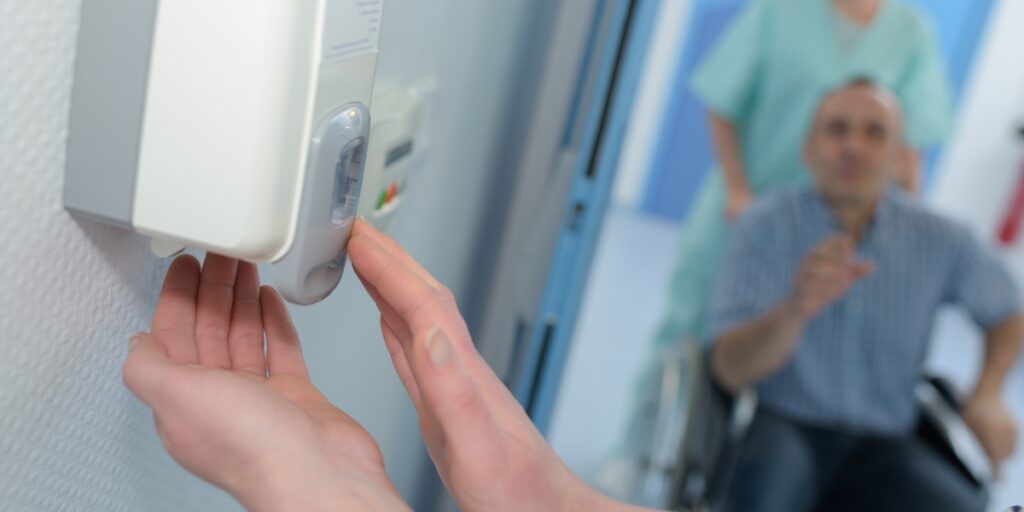Drinking Hand Sanitizer: Warnings and Dangers

What Happens if You Drink Hand Sanitizer?
Drinking hand sanitizer can cause side effects ranging from headaches, blurred vision, nausea, vomiting, and abdominal pain to blindness and death.
During the Sars Cov-2 Coronavirus pandemic, the Centers for Disease Control and Prevention (CDC) encouraged people to use hand sanitizer to maintain hand hygiene when soap and water weren’t available. A wide variety of alcohol-based hand sanitizer products became available, leading to some people using them for purposes outside of killing germs, including intentionally swallowing them and suffering the consequences.
Regardless of whether it is accidental or intentional, swallowing alcohol-based hand sanitizer, especially in young children, can have lasting health effects and be fatal.
Calls to poison control centers and emergency rooms involving swallowing alcohol-based hand sanitizer continue to rise throughout the United States. Some cases are due to accidental ingestion, but many more are from people attempting to get drunk from drinking hand sanitizer.
Can You Drink Hand Sanitizer to Get Drunk?
Technically you can drink hand sanitizer to get drunk or at least experience symptoms similar to intoxication from alcohol meant for human consumption as few as 3 to 4 pumps or swallows of an alcohol-based hand sanitizer can result in intoxication or even alcohol poisoning.
You are far more likely to have severe, possibly life-threatening complications than a pleasurable experience from ingesting hand sanitizer.
Alcohol-based hand sanitizers contain different types of alcohol and concentrations than spirits used to make cocktails and affect the human body differently. Ethyl alcohol (ethanol), found in liquor, beer, and wine, is the only alcohol safe for human consumption. Isopropyl alcohol (isopropanol) is a medical-grade disinfectant, not safe for ingestion.
The concentration of either type of alcohol, ethanol or isopropanol, in hand sanitizers ranges from 60-95%, which is more potent than most liquors. Some products contain only one kind of alcohol for disinfecting, and others have a combination. None of them are safe to drink.
Previous to 2020, methanol alcohol was a common ingredient in hand sanitizers; however, the United States Food and Drug Administration (FDA) determined it to be highly toxic and outlawed it.
From May to June 2020, 15 people in Arizona and New Mexico sought emergency treatment for methanol poisoning, a unique type of toxicity related to drinking hand sanitizer that contained methanol. Four of the people died, and three more developed permanent visual impairments.

Side Effects
Because the alcohol concentrations in hand sanitizer products are so high, the side effects of drinking it set in reasonably quickly. The symptoms and side effects of drinking hand sanitizer are similar to someone with an extremely high blood alcohol content (BAC).
Side effects of ingesting hand sanitizer include:
- Nausea
- Vomiting
- Headache
- Blurred vision
- Dizziness
- Slurred speech
- Burning in the nose, mouth, and throat
- Abdominal pain and cramping
- Metabolic acidosis, or kidney failure from a build-up of acid in the body
- Permanent blindness
- Nerve damage
- Seizures
- Coma
- Death
The FDA warns that combining regular alcohol with products containing methanol can cause delayed symptoms that appear up to eight hours after ingestion. Suppose you have hand sanitizer products and young children or someone struggling with an alcohol use disorder in your home. In that case, it is essential to learn the signs and dangers of drinking hand sanitizer and what to do in an emergency.
Drinking Hand Sanitizer Warnings
Multiple public health agencies have issued warnings about drinking hand sanitizer.
People desperate to become intoxicated or avoid alcohol withdrawal syndrome will resort to drinking hand sanitizer despite the warning and potentially life-threatening complications.
If you believe someone has ingested alcohol-based hand sanitizer, you should immediately call a poison control center or get them to an emergency room. Do not wait for the symptoms to appear.
Hangers and ER Visits
Ironically, some of the most well-known cases of hand sanitizer intoxication happened during emergency room visits. Hangers, a slang term for hand sanitizer dispensers that hang from walls, are in almost every room of hospitals, providing easy access for people desperately wanting to get or stay intoxicated.
One patient admitted to an ER for public intoxication baffled his care team when he remained clinically intoxicated for 18 hours after he arrived. When doctors questioned him and searched his belongings, he admitted that he had been drinking available hand sanitizer to avoid withdrawal seizures. Luckily he didn’t suffer permanent damage but was transferred to inpatient care and referred to addiction treatment. Similar cases are not rare.
People struggling with addiction tend to be less than honest with medical professionals. The National Institutes of Health (NIH) recommends that doctors screen for substance use disorders regardless of why a person is in the emergency room and take appropriate precautions by removing hangers and other potential temptations to patients.

Drinking Hand Sanitizer Addiction Treatment
Drinking hand sanitizer is almost always a sign of a more significant, advanced addiction; whether you abuse hand sanitizer because it is easily accessible or to avoid alcohol withdrawal, help is available.
At Northridge Addiction Treatment Center, we understand that addiction can cause people to do drastic things, like drink hand sanitizer. We offer onsite medical detox to ensure you can withdraw in a safe, peaceful environment with 24-hour medical support and care without shame or judgment.
We work closely with you to address addiction’s mental and behavioral health effects through an individualized treatment plan using only researched, evidence-based approaches. During your time at NATC, you’ll learn healthy ways to deal with triggers and future challenges to face life confidently after treatment.
Our goal is to empower you to take control of your life and achieve long-term recovery. Reach out to our treatment specialists to start on your path to recovery today.
Find Meaningful Recovery
Our caring and compassionate specialists are eager to help you comfortably navigate this journey to recovery. Our individualized treatment plan, programs, and therapies may be a perfect match for you or your loved one. Let us assist you in living the happy life you deserve. It starts with a phone call.




